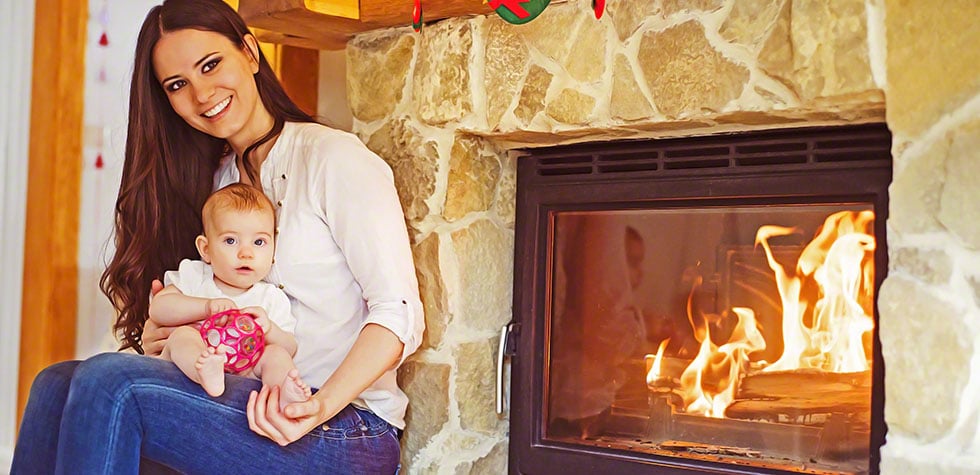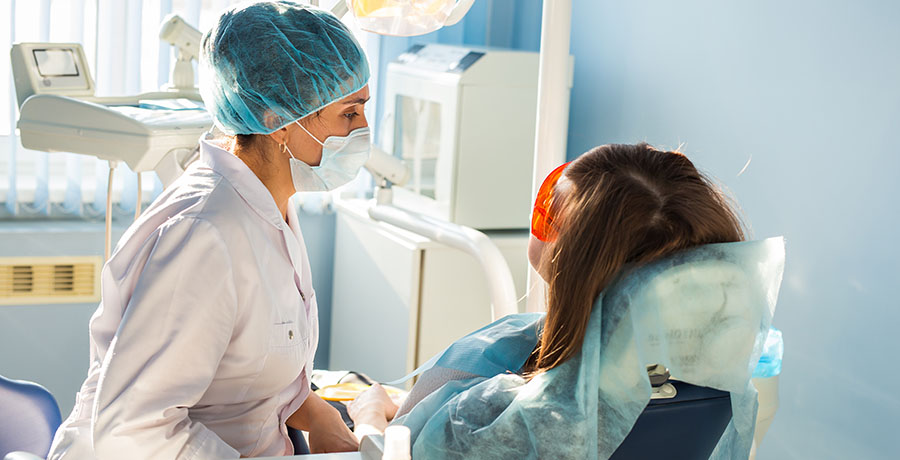Allergies can flare up anytime and they are also quite common in young children, like infants and toddlers. Here is everything you need to know about the different types of allergies that can occur in babies. Don’t try any treatment without discussing it with an allergy specialist.
Types of Allergies In Babies And Toddlers
Food Allergies
Just like adults, food can also trigger allergies and reactions in infants and small children. There are many types of foods like milk, nuts, certain fruits, and even honey, that cannot sit right in a baby’s stomach and it can lead to breaking out of hives, ear infections, upset stomach, and loss of appetite in babies.
Sometimes, formula milk can also be a culprit in producing raging infections and reactions in a baby’s body.
Pollen Allergy
Pollen is a very common allergy trigger and it can also lead to severe allergies and respiratory issues, in the spring and summer months. Pollen is the small microscopic part of a flower that’s very lightweight and can easily travel via wind or water.
If babies have a compromised immune system, then pollen can lead to eye and ear swelling, infections in the nose, constant sneezing and coughing, and difficulty in breathing, and if it comes into contact with the skin, then it can lead to hives and red patches forming on the skin that can be very itchy and uncomfortable.
Dust Allergy
Dust allergies are not only common in adults, but in children as well. Since babies don’t have a developed immune system, they can be very easy targets for allergens and they can cause a plethora of allergic reactions in the body. Dust, if inhaled, can lead to a coughing fit, watery and itchy eyes, uncomfortable and irritated nose, chest constriction, throat clogging, and inability to swallow things, because of swelling in the neck.
These symptoms need to be taken seriously otherwise a small allergic reaction can turn into a full-blown medical emergency, in no time and your baby’s life might be at risk.
Allergic Rhinitis
Allergic rhinitis is also known as hay fever. This can be identified in babies and toddlers by high fever and itchy nose. Other times, there also might be red and itchy patches all over the skin, especially near the bend of the elbow, the inside of the palm, the cheeks, the folds of the neck, and on the stomach.
Allergic rhinitis can be caused by dust, hay, or basically any foreign substance in the atmosphere that the immune system can’t handle. It can enter the baby’s body via the nose, eyes, and mouth and can travel into the bloodstream and wreak havoc.
Insect & Pet Allergies
Insects can also be responsible for aggravating allergies. Certain insects like dust mites, cockroaches, bees, and hornets, can lead to fevers, coughs, wheezing, swelling of the face and neck, ear infections, mucus discharge from the nose, and other symptoms.
Similarly, babies and toddlers can also be affected by pet hair, dander, and fur. If inhaled, pet fur can lead to nose congestion, tightening of the chest, extremely runny nose, pressure on the under eye area and around the cheeks and the list goes on. You need to be careful with babies and small children, especially if they’re around animals and insects because you never know what could flare up an allergy.
Chemical Allergies
There are also allergies associated with certain substances, like the detergent used to wash baby clothes or any lotion or oil you’re using on his/her body. These topical things may contain certain ingredients, like paraffin, waxes, fragrances, and other harsh chemicals that might flare up allergic reactions on the baby’s skin.
There are certain diaper brands as well that can irritate the skin of babies and the main culprits are the harsh materials and synthetic fabrics used in the making of these diapers. These rashes are mostly skin allergies and are caused by contact with the allergen.
So, you need to be mindful when selecting normal things like detergents, soaps, shampoos, and other baby-related things, because you don’t want to risk a reaction.
How To Manage Allergies In Children?
Now that you know the different types of allergies that can occur in babies and toddlers, the best action is to visit an allergy center Germantown if you’re baby has an allergy. Anyways, here are some things you can do to manage and prevent allergies in the future.
Look Out For Symptoms
Since small babies are unable to tell you what symptoms they’re feeling, if an allergic reaction has flared up, it’s up to you to monitor the behavior and the symptoms being shown by the baby. You need to look out for extremely runny nose at the most random times, breakouts of hives on the skin, or any breathing difficulties, because those are going to help you in narrowing down what the child is suffering from.
Consider Immunotherapy
Immunotherapy is a great option to consider, especially in children of young age. As a child’s immunity is getting developed from a young age, a treatment involving exposure to allergens is going to help get rid of allergies for good.
So, if your baby or toddler is suffering from any allergy that can be treated with allergy shots, then it’s worth giving it a try. There is a high chance that a child can outgrow allergies and become immune to triggers permanently so that no reactions flare up in the future.
Avoid The Trigger
This one is a no-brainer, but since babies and toddlers are at huge risk of getting severely affected by allergies, you shouldn’t take any chances. After the allergy diagnosis, you know what trigger is causing the allergies, so you want to ensure that you minimize the exposure of the allergen to your child as much as possible. If it’s a windy day, then try not to take your baby out.
Similarly, if you know that a certain food is causing allergies, then try to eliminate it from the diet completely and look for alternatives to get the daily dose of nutrients in.
Good Hygiene
As with adults, babies and toddlers need to have good hygiene as well. This means that regularly changing clothes, having a clean surrounding, bathing, and cleaning the baby regularly, are important habits to incorporate into your daily routine.
Avoiding the allergen will do wonders for your baby and you won’t have to deal with sudden outbursts of allergies and reactions regularly.
Build The Immunity
Infancy is the perfect time to develop immunity, and while the body is doing that by itself, it doesn’t hurt to give it that extra boost. Make sure that you’re giving a good diet to your baby or toddler. Incorporating fresh and leafy greens, legumes, seeds, and nuts (if they’re not allergic) is going to strengthen your baby’s defense mechanism from the inside out.
Instead of going for sugary formulas and feeding supplements, try to provide nutrition through organic and natural things like sweet potatoes, apples, carrots, and even some protein, at later stages, and you’ll see the difference yourself.
Conclusion
Allergies in babies can be hard to detect because they can have a hard time communicating the symptoms. So, it’s important that you are vigilant in this regard and help your child out as much as you can and follow the advice of the child’s allergy doctor Manassas completely.



